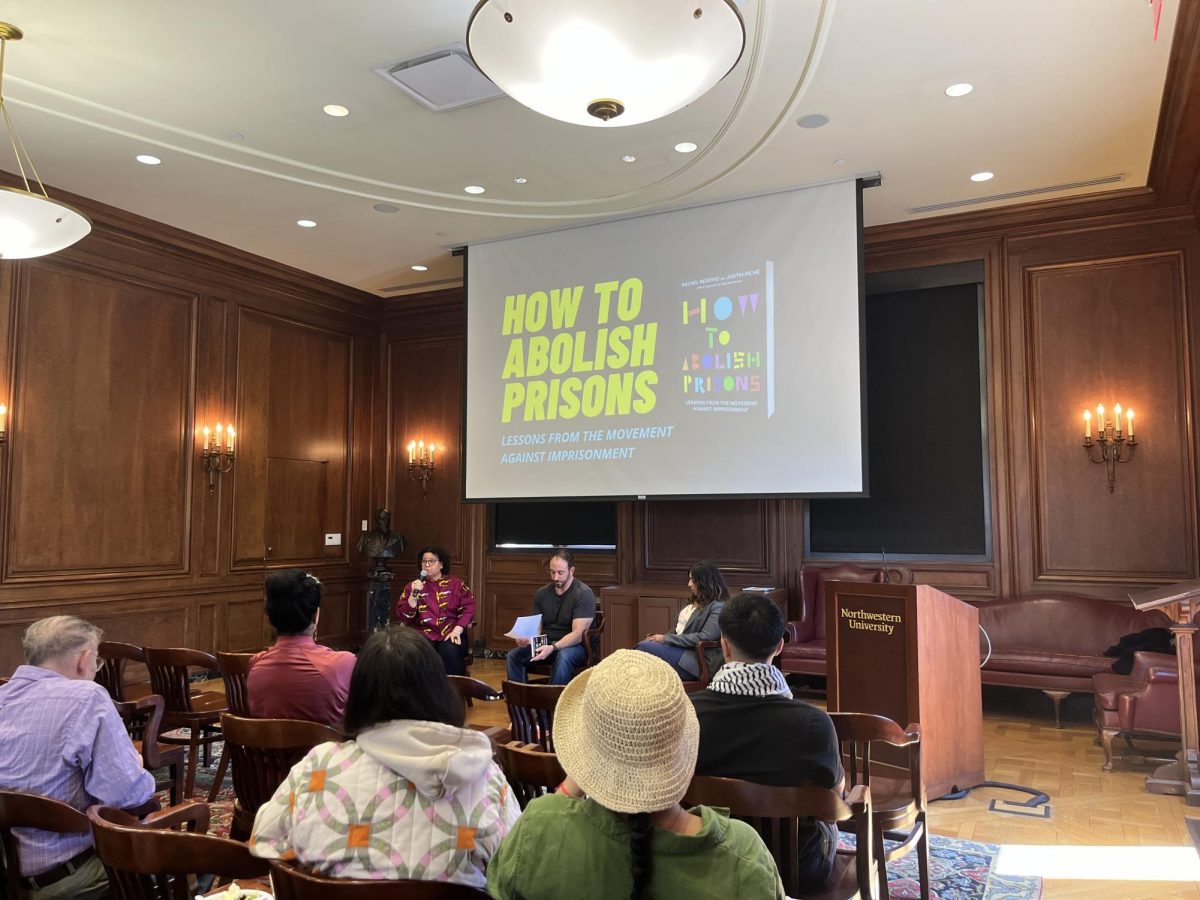Almost 10 years after they first began discussing the book, authors Rachel Herzing and Justin Piché discussed their recently released novel, “How to Abolish Prisons: Lessons from the Movement Against Imprisonment,” at a Monday event.
The novel provides an in-depth look at the prison abolition movement, the initiatives the movement has launched, the organization of the movement and how the abolition movement would fit into day-to-day politics.
The event was co-sponsored by the Department of Black Studies, the Department of Anthropology and the Northwestern Prison Education Program.
“We thought it would be really important to say how people do it and to move it from a purely ideological space to space that really is about organizing and activism and practice,” Herzing said. “People are putting these politics into play into motion all day, every day. That’s what makes them real.”
Drawing on a variety of interviews with organizers and activists in the United States and Canada, the novel focused on six abolitionist organizations from each country.
The authors said it was important to provide firsthand information and experiences, so readers could consider how abolitionist ideas could be applied in the real world.
“From the groups that we’ve talked to, their goals are really how we can talk about understanding the nature of prison and what it takes to disrupt the logic of imprisonment,” Herzing said. “We need people inside cages and outside of cages to be doing that collaboratively.”
While Piché said imprisonment is inherently harmful, he said there are specific demands advocates should target to mitigate the consequences of the practice.
Some of these demands include ending solitary confinement, providing free phone calls to prisoners and educating prisoners, similar to the Northwestern Prison Education Program’s initiative, moderator and anthropology Prof. Shalini Shankar said.
“It seems like (NPEP provides) education so that people who are incarcerated have better tools to kind of think critically about their own condition,” Shankar said.
Also discussed in the novel were various pathways to achieving abolition of prisons, including anti-expansion work, prisoner solidarity work and legal and policy work.
Both authors emphasized the importance of employing all tools possible to achieve abolition.
“We need a lot of (tools) to be working simultaneously to weaken a system that has dramatically more resources than us, dramatically more legitimacy than us and has a lot going for it, including a very entrenched history of use,” Herzing said.
Email: [email protected]
Twitter: @lmschroeder_
Related Stories:
— ‘My prison cell became my university’: Benard McKinley’s journey to civil rights law
— NPEP hosts panel on rehabilitation and reentry for incarcerated people







